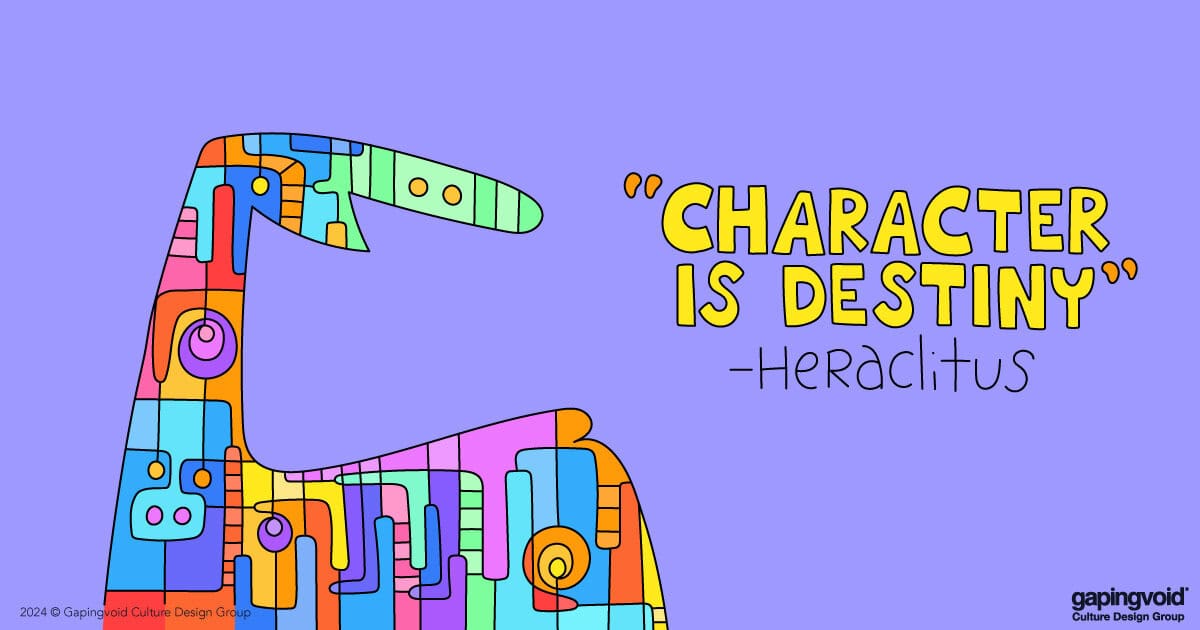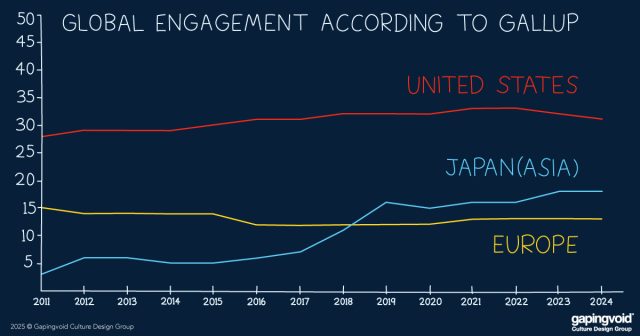
“World renowned psychologist,” prolific author and C-suite executive coach, Dr. Jim Loer made a recent appearance on the always-excellent Knowledge Project podcast #193 with Shane Parrish.
The Greek philosopher, Heraclitus (c. 500 BC) is credited with coming up with the phrase, “Character Is destiny” i.e what happens to you outside is directly connected with who you are on the inside.
Dr Loer spent much of this podcast interview making a similar point. Who you are on the inside has a lot to do with how well you get on in the world. This is as true for his sports star and business tycoon clients as it is for the rest of us.
Things get interesting when he poses the question, yes, but, who controls what’s on the inside?
And his answer is, very simply, your inner dialogue.
And who decides what your inner dialogue says to you? Well, one could always say, “Events, Dear Boy, Events.” However, according to Dr Loer, most of it is installed by the way your parents spoke to you when you were a child.
So if your parents talked to you in a kind and empowering voice, that will be how you “inner-dialogue” with yourself. And if they spoke to you in a cruel and discouraging way, that too is how your inner dialogue works. Not only that, the way they speak to you was learned from how THEIR parents spoke to them, as well. It seems inner dialogues, good or bad, are intergenerational. Yes, you can negate the negative effects by achieving great things in your own life, but it’s essentially very, very difficult to alter.
Dr. Loer’s advice for changing the inner dialogue, is to “change the narrative.”
How do you change the narrative? By changing the framing. Instead of saying “I grew up poor, which is why I suck and I’ll never amount to anything,” successful, driven people are more likely to say something like, “Thank goodness I grew up poor, it made me tougher, smarter and more driven… I’d never have achieved a tenth as much without it.” Same reality, different framing and narrative.
The moral of the story is, be very mindful of how you speak to not only your kids (it will affect their inner dialogue long term), but yourself because it will determine the outcomes you get.
From our perspective, what’s so fascinating is that a company’s culture is kind of like a collective inner dialogue. Instead of getting it from a parent, the story comes from the organization’s leaders. This is why such a big part of being a leader is about storytelling. Stories create the narratives which create the inner dialogue, as it were. And this creates everything else…
…good or bad.




Reflect on the narrative you’re crafting in your mind and its impact on your perceptions and actions. Consider whether your internal story empowers you or holds you back from reaching your full potential. Challenge limiting beliefs and reframe your inner dialogue to align with your goals and aspirations. By consciously shaping a positive and empowering story, you can cultivate resilience, confidence, and growth in all aspects of life.